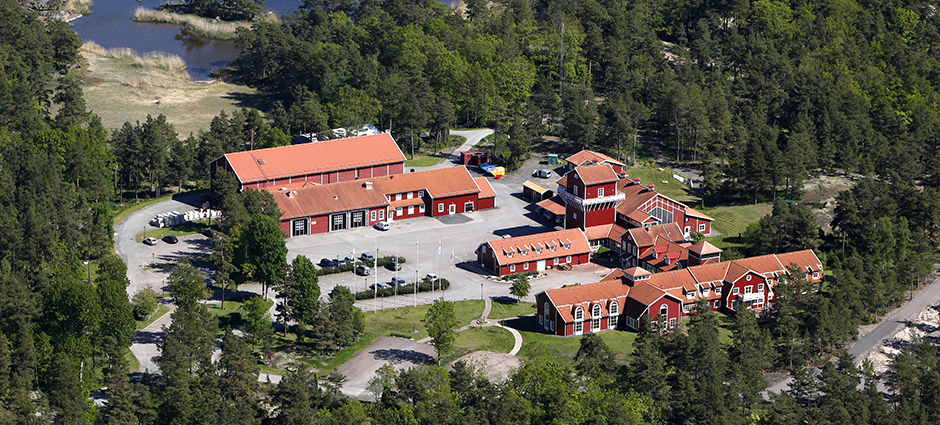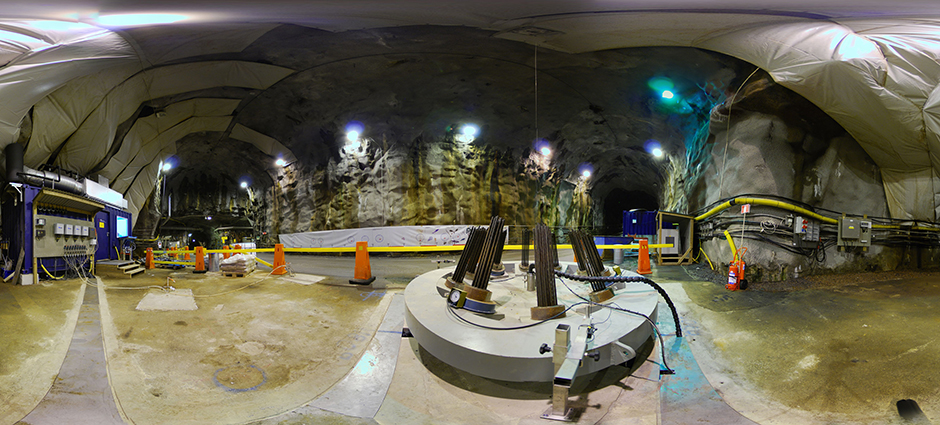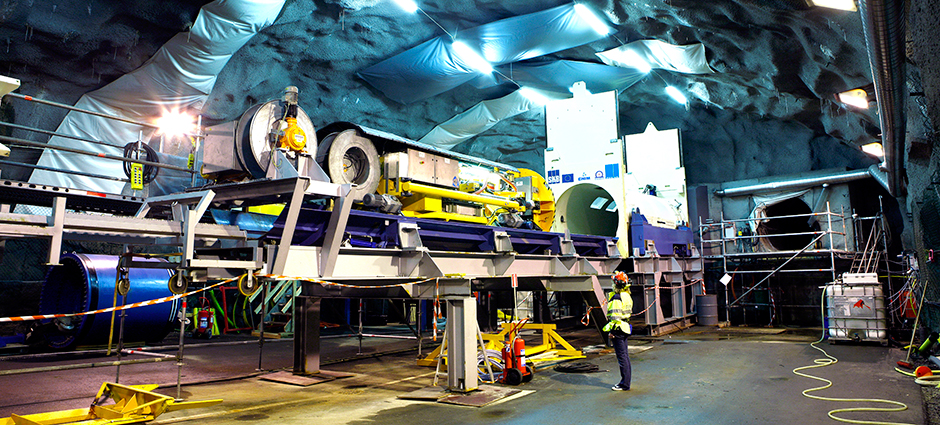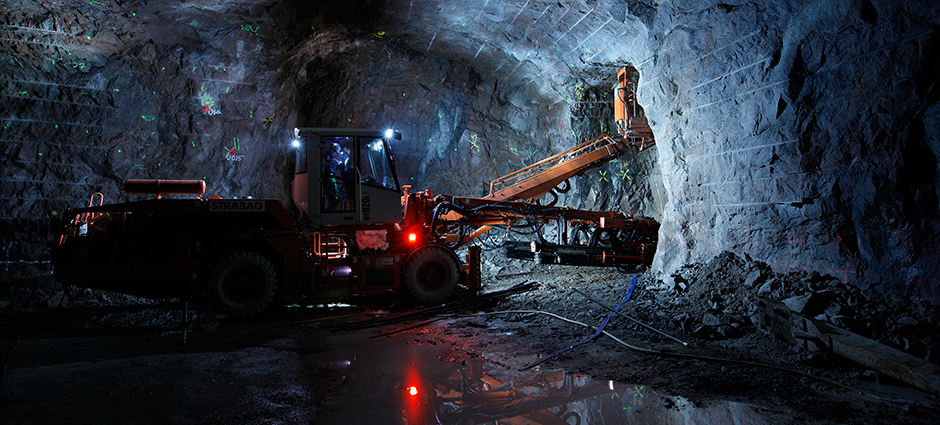The Äspö Hard Rock Laboratory
The Äspö Hard Rock Laboratory
SKB’s underground hard rock laboratory at Äspö north of Oskarshamn is where much of the research about the final repository for spent nuclear fuel is taking place. This is where we test different technological solutions in full scale in a realistic setting.
The Äspö Laboratory is a unique research facility and there are only a few like it in the rest of the world. Almost 500 metres underground, we conduct experiments in collaboration with Swedish and international experts. This research means that we can study the interaction of bentonite clay and copper canisters with the rock in realistic conditions. Here experiments are made to identify the role of the rock as a barrier. This can, for instance, concern how the rock slows down the movement of radioactive substances or how microbes affect conditions at this depth.

The Äspö Hard Rock Laboratory is situated in the Misterhult Archipelago close to the Oskarshamn nuclear power plant. Click on the image for a larger version.
Dry run
The laboratory is not only used for experimental field trials. It could be described as a dry run for the construction of the Spent Fuel Repository. We develop and test different technologies and methods for studying rock, designing the repository and depositing the canisters. The machinery and equipment we are testing are, for instance, totally unique.
In many respects the Äspö Laboratory resembles the future spent fuel repository. There are tunnels, emplacement holes, copper canisters, clay and machines. But the two facilities differ on one important point – there is of course no spent nuclear fuel at the laboratory.
Cooperation across the borders
A large part of the research was carried out in collaboration with other colleges, universities, and organizations. There was also extensive cooperation and exchange of technology and experience with SKB’s sister organizations around the world. Certain parts of the research at the Äspö Laboratory were conducted through the EU’s Framework Programmes for research and technology.
Last review: February 10, 2026
Last review: February 10, 2026


